false memories
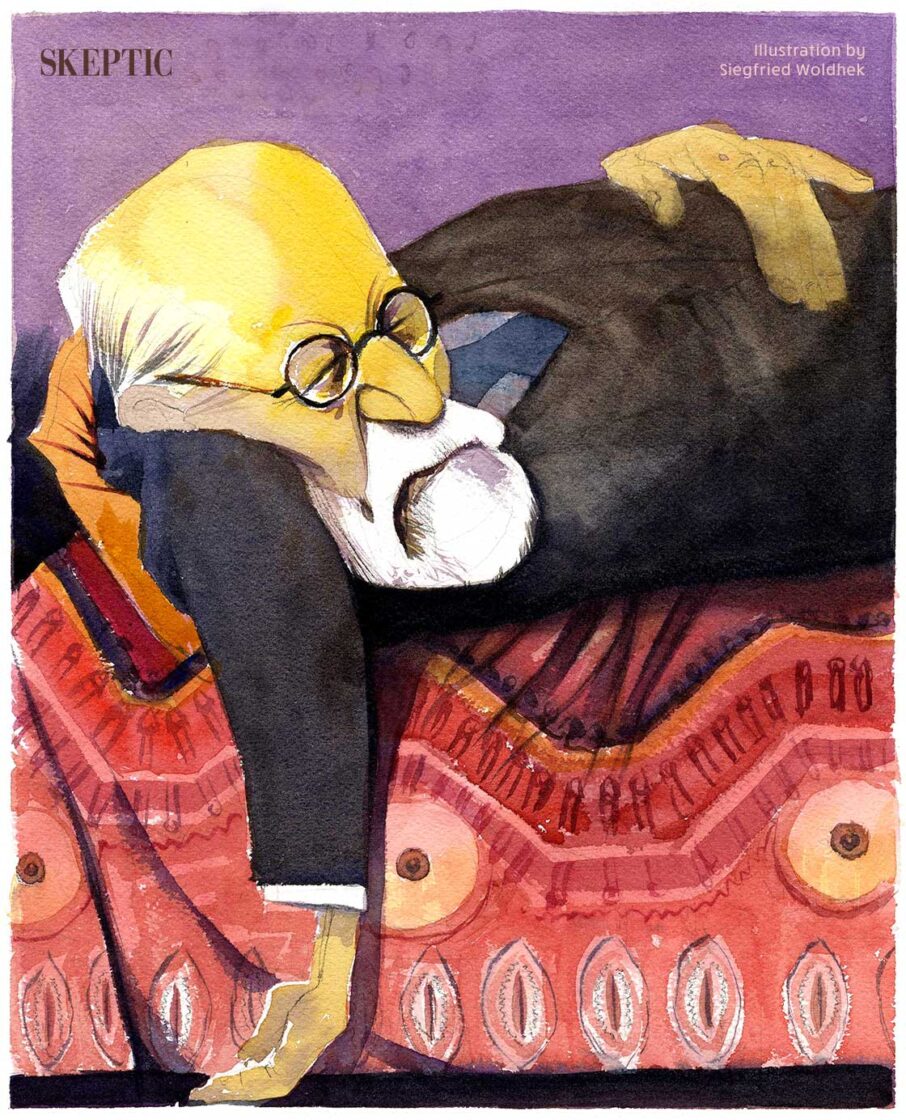
Is psychotherapy effective? Which of the many types is best? Are certain therapies better suited to treat certain problems? How can you rationally choose a therapist? Is it better to pick a psychiatrist, a psychologist, or some other type of counselor? There is a veritable cornucopia of individuals offering advice about mental health issues, from celebrities to life coaches to pastors to concerned friends, some with formal training and some with no credentials at all. Does psychotherapy ever make patients…
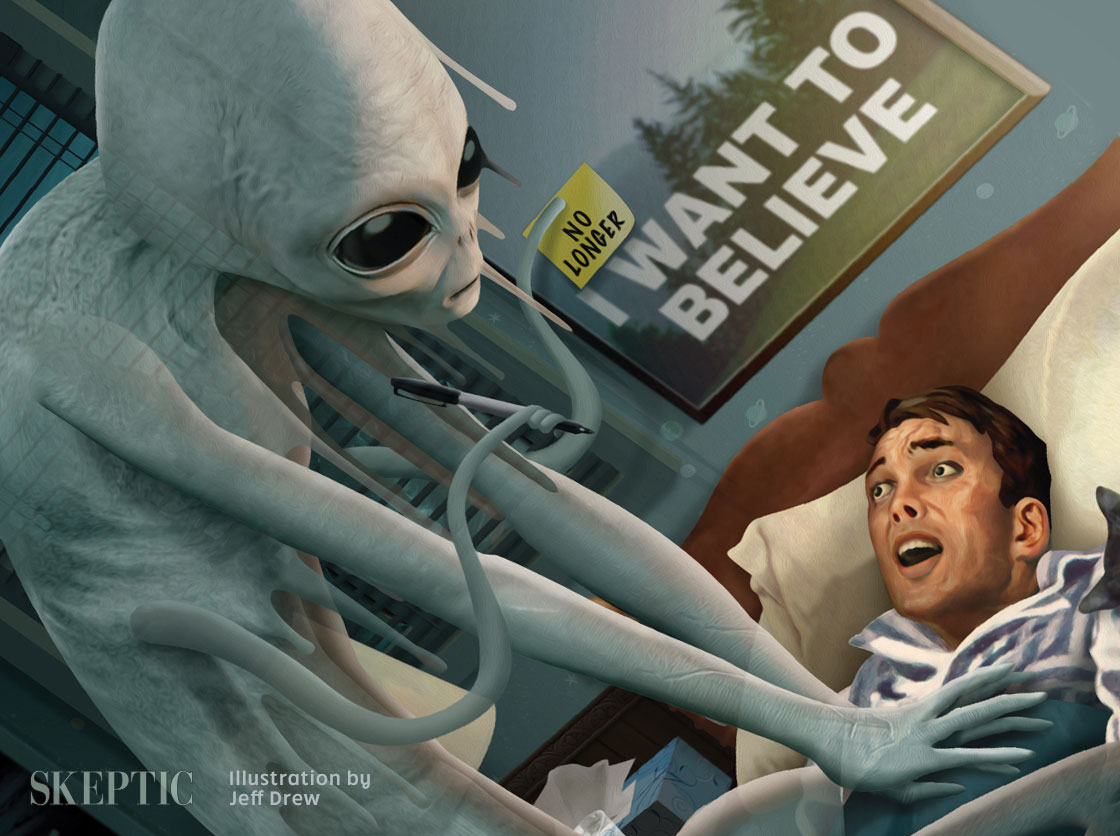
Alien abductions are among the most curious and interesting of all human psychological phenomena, and this article explores the different theories that explain from a scientific perspective what, exactly, is going on in someone’s brain when they feel like they’ve been abducted by aliens (assuming, of course, that they’re not actually being abducted by aliens).
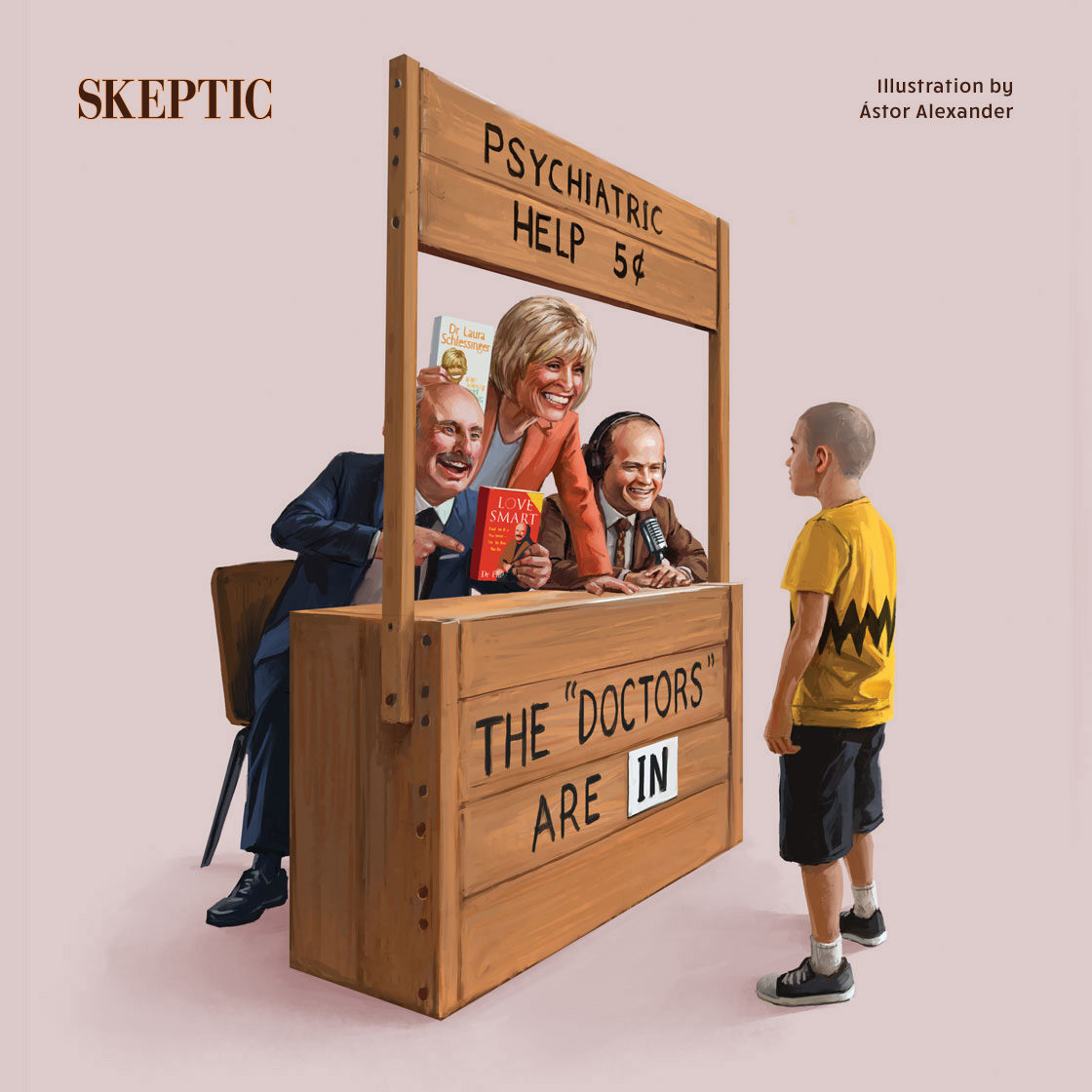
Scientifically trained psychologists and social scientists have long been skeptical of clinical psychotherapy techniques because they are so dependent on anecdotes instead of data. In response, clinicians with scientific training have developed data-based techniques, like Cognitive Behavior Therapy. But these new techniques have not trickled down to pop psychologists like Laura Schlessinger (Dr. Laura) and Phil McGraw (Dr. Phil), along with self-help gurus like Tony Robbins. This article critiques these pop psych nostrums.
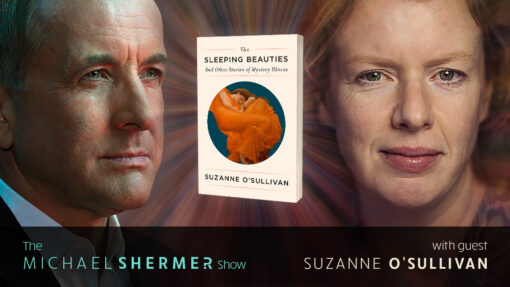
In episode 222, Michael Shermer speaks with award-winning Irish neurologist Suzanne O’Sullivan about her work exploring the complexity of psychogenic illness affecting people all around the world. Her book The Sleeping Beauties, documents her investigation of psychosomatic disorders as she traveled the world visiting communities suffering from these so-called mystery illnesses.
In episode 222, Michael Shermer speaks with award-winning Irish neurologist Suzanne O’Sullivan about her work exploring the complexity of psychogenic illness affecting people all around the world. Her book The Sleeping Beauties, documents her investigation of psychosomatic disorders as she traveled the world visiting communities suffering from these so-called mystery illnesses.

Are you old enough to have a memory of the memory wars that were sparked by a debate that began more than 30 years ago? In this column from Skeptic magazine 24.3 (2019), Carol Tavris expounds on the persistence of belief in recovered memories.
In Science Salon # 87 Michael Shermer speaks with Douglas Murray about his new book The Madness of Crowds on sexuality, gender, technology and race playing out in our workplaces, universities, schools and homes in the names of social justice, identity politics and intersectionality.
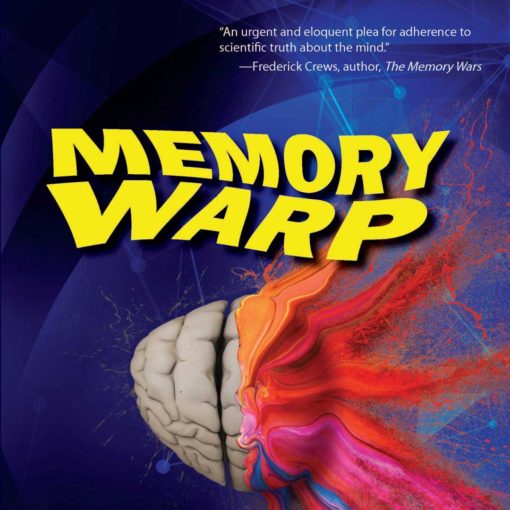
Mario E. Herrera and Lawrence Patihis review Mark Pendergrast’s new book: Memory Warp: How the Myth of Repressed Memory Arose and Refuses to Die.
In this week’s eSkeptic, Mario E. Herrera and Lawrence Patihis review Mark Pendergrast’s new book: Memory Warp: How the Myth of Repressed Memory Arose and Refuses to Die.
In this week’s eSkeptic, in the wake of passionate and polarized commentary following Dylan Farrow’s recent allegations that Woody Allen sexually abused her when she was 7 years old, social psychologist Dr. Carol Tavris discusses how the science of memory may help guide how we think about cases like this.
In this week’s eSkeptic, we present Daniel Greenburg’s article from the archives of Skeptic magazine Volume 11, Number 3 in which he discusses how psychological research shows that our most powerful memories may be untrustworthy.














